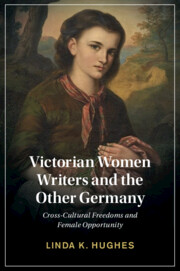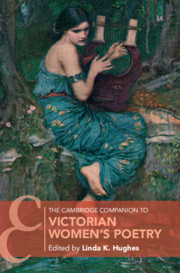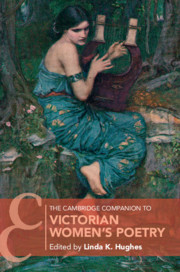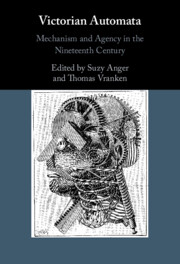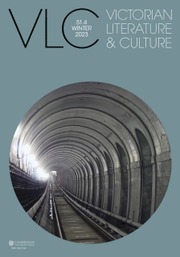Victorian Women Writers and the Other Germany
Shedding new light on the alternative, emancipatory Germany discovered and written about by progressive women writers during the long nineteenth century, this illuminating study uncovers a country that offered a degree of freedom and intellectual agency unheard of in England. Opening with the striking account of Anna Jameson and her friendship with Ottilie von Goethe, Linda K. Hughes shows how cultural differences spurred ten writers' advocacy of progressive ideas and provided fresh materials for publishing careers. Alongside well-known writers – Elizabeth Gaskell, George Eliot, Michael Field, Elizabeth von Arnim, and Vernon Lee – this study sheds light on the lesser-known writers Mary and Anna Mary Howitt, Jessie Fothergill, and the important Anglo-Jewish lesbian writer Amy Levy. Armed with their knowledge of the German language, each of these women championed an extraordinarily productive openness to cultural exchange and, by approaching Germany through a female lens, imported an alternative, 'other' Germany into English letters.
- Provides a truly interdisciplinary account of ten Victorian women writers and their sustained cultural exchanges with a surprisingly progressive nineteenth-century Germany, incorporating literature, culture (including art and music), travel, and sexualities
- Introduces readers to major and lesser-known writers who illuminate Germany and German culture, crossing the genres of fiction, poetry, art criticism, travel writing, translation, letters, and diaries to paint a full and colourful picture
- Enhances knowledge of social and publishing history and demonstrates the importance of direct contact with other cultures and languages
- Revises the dominant association of George Eliot with Germany by offering a fuller, more complicated history in which she stands as a successor more than a pioneer on her first contact with Germany
Reviews & endorsements
‘well written asnd researched’ Rosemary Ashton, Times Literary Supplement
‘… well written and researched, Linda Hughes's book consists of a set of essays connected by the surprisingly rich and diverse group of nineteenth-century women writers and travellers who interacted with Germany and its literature and culture … Some of the best insights in Hughes's book come in the passages on Anna Jameson, who deserves the detailed attention shereceives here as a pioneer of lone womanhood travelling, discussing and writing about Germany, particularly its art.’ Rosemary Ashton, The Times Literary Supplement
‘… detailed, nuanced and extremely readable.' Flore Janssen, Victorian Popular Fictions
‘… an impressive work, scholarly and readable, a collective intellectual and artistic biography that weaves together its ten subjects in illuminating and revelatory ways. Scholars of these authors should certainly consult Hughes’s work, and students of the global nineteenth century will want to consider her account of how these Victorian women’s German experiences shaped their sense of themselves as citizens of the world.' Anne DeWitt, Nineteenth-Century Gender Studies
‘excellent’ Colton Valentine, Style
‘The achievement of Hughes’s book, founded on consummate scholarship, documented history, and piercing critical insight, is to shed new light on the richly complex lives of her ten subjects, as well as their shared attraction to [the] country.’ James Diedrick, Victorian Studies
‘Linda K. Hughes brings Anglo-German literary relations to the foreground of this ambitious study[, which] traces the increasing mobility, independence, and cosmopolitanism of successive generations of women writers who worked in conversation with their German counterparts and were immeasurably enriched by the exchange.’ Joanne Shattock, Victorian Periodicals Review
Product details
March 2025Paperback
9781009069328
304 pages
229 × 152 × 16 mm
0.445kg
Available
Table of Contents
- 1. Entrée to the 'other' Germany: Anna Jameson, Ottilie von Goethe, and their women's network
- 2. Germany through a female lens: Anna Jameson's writings, 1834-1860
- 3. Networked families in Germany: Mary Howitt, Anna Mary Howitt, and Elizabeth Gaskell
- 4. An unbeliever in Germany: Marian Evans (George Eliot), 1854-5
- 5. The Anglo-German fiction of George Eliot and Jessie Fothergill: Daniel Deronda (1876) and The First Violin (1878)
- 6. New woman travellers and translators: Michael Field and Amy Levy
- 7. An Anglo-German expatriate-citizen: Elizabeth von Arnim
- 8 Queer borders: Vernon Lee's haunted expatriate writings.

